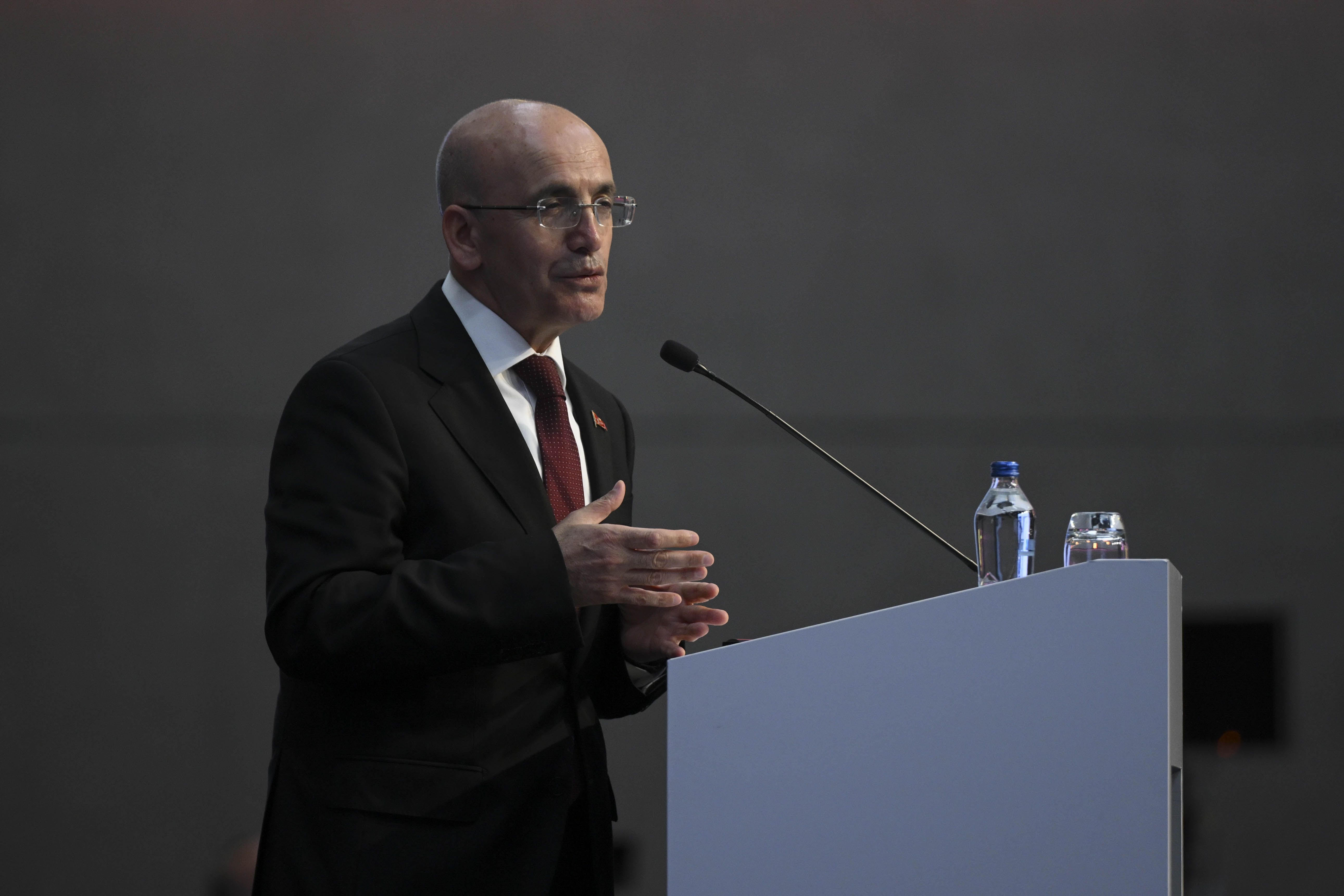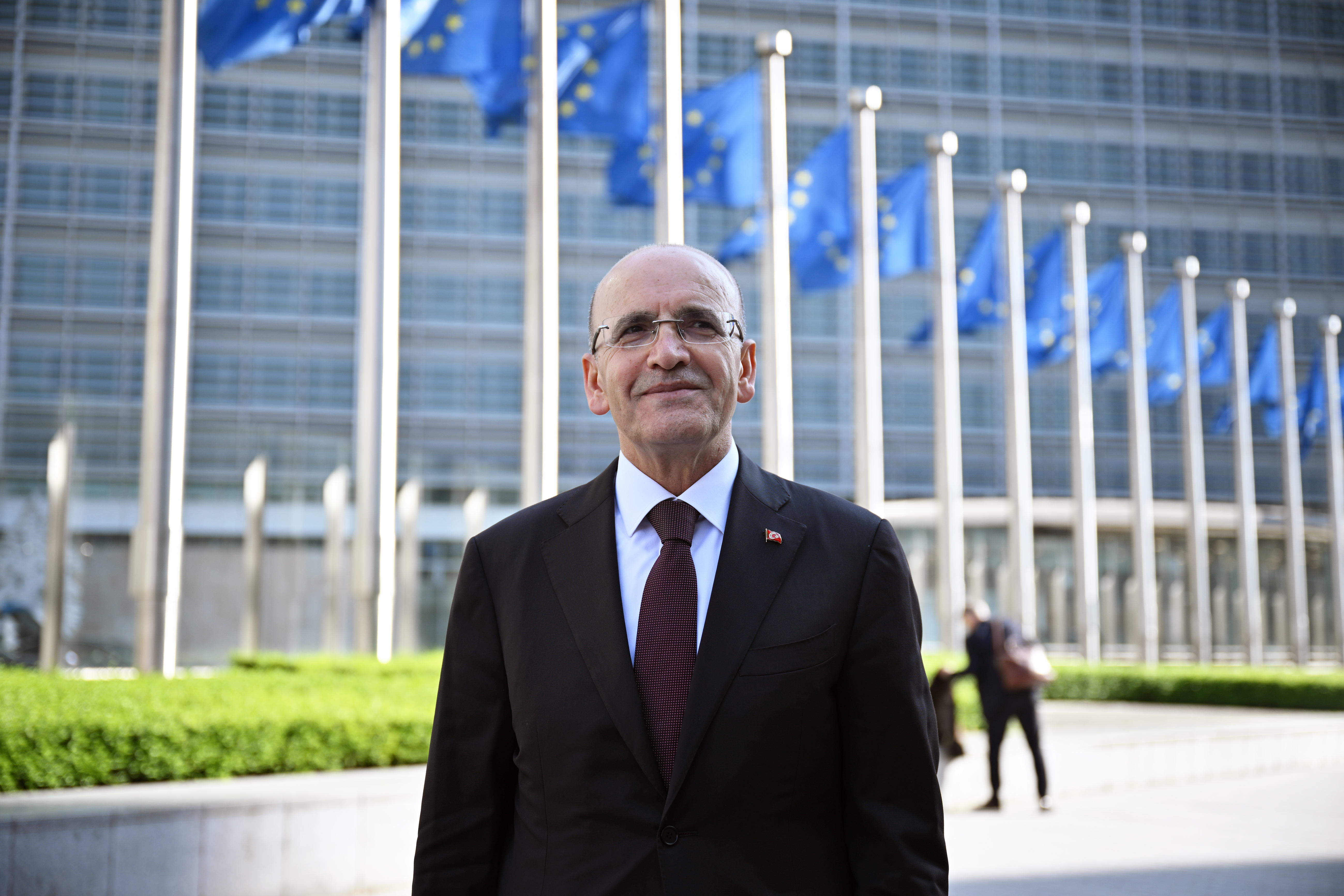Turkish Finance Minister Mehmet Simsek has reaffirmed Türkiye’s commitment to responsible and sustainable economic management during high-level meetings in Washington, D.C., on the sidelines of the International Monetary Fund (IMF) and World Bank Spring Meetings.
Speaking at an event hosted by the Atlantic Council on Tuesday, Simsek emphasised that Ankara’s macroeconomic stabilisation program is “on track” despite continued global uncertainty and fluctuations in global markets.
“Our response to global economic policy uncertainty is to stick to our prudent, responsible, sustainable macroeconomic policies,” Simsek said.
He added that Türkiye is well-positioned to weather inflationary pressures thanks to falling oil prices and the country’s ongoing monetary tightening.
“Inflation is likely to stay well within the program target band,” he said, adding that a lower current account deficit than initially forecast is expected.
Simsek also reaffirmed the government’s commitment to spending discipline and structural transformation, including reforms focused on digital infrastructure, artificial intelligence, and the green economy — all aimed at reducing reliance on oil and gas imports.

Türkiye eyes greater role in global supply chains and investment flows
Despite geopolitical risks and trade fragmentation concerns, Simsek said Türkiye’s diversified trade network, domestically driven growth, and robust industrial base make it a resilient and attractive investment destination — especially for Western and Asian investors.
“Türkiye is one of the few countries with sizable manufacturing capacity and culture. Our integration into global value chains, particularly with the West, will be strengthened,” he said.
Türkiye’s trade is heavily concentrated with countries in its neighborhood and those with which it has free trade agreements, giving it a buffer against global disruptions, Simsek noted.
He said Türkiye’s long-term economic outlook remains appealing thanks to its strong infrastructure, skilled workforce, and emerging leadership in digital and AI readiness among developing economies.
“If you're taking a long-term perspective, Türkiye is still a compelling case,” Simsek told investors.

Strong ties with the EU and World Bank
Simsek highlighted Türkiye’s strategic role in contributing to European defense and infrastructure needs, especially as the EU plans to ramp up defense spending.
“We believe Türkiye has significant capacity to help the EU meet its defense goals,” he said, referencing the bloc’s €800 billion ($912 billion) defense budget over the next four years.
He also praised the World Bank’s growing partnership with Türkiye, noting that financial commitments have more than doubled from $17 billion to $35 billion in the last three years.
“The World Bank's focus and our priorities perfectly match — from green transition to digital infrastructure, they’re there for us,” he said.















